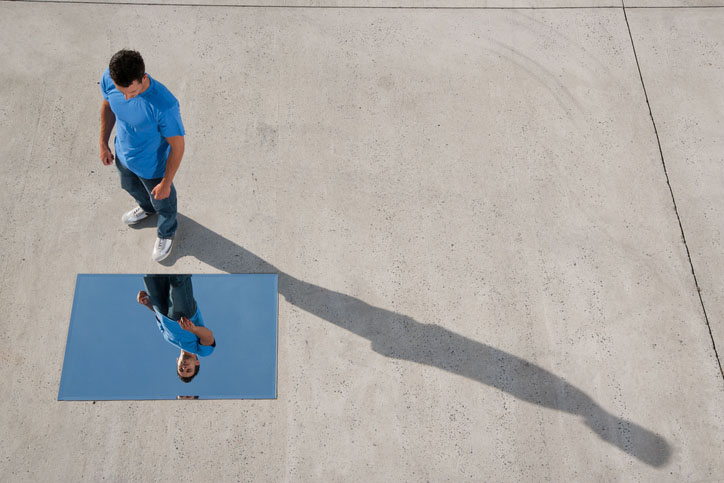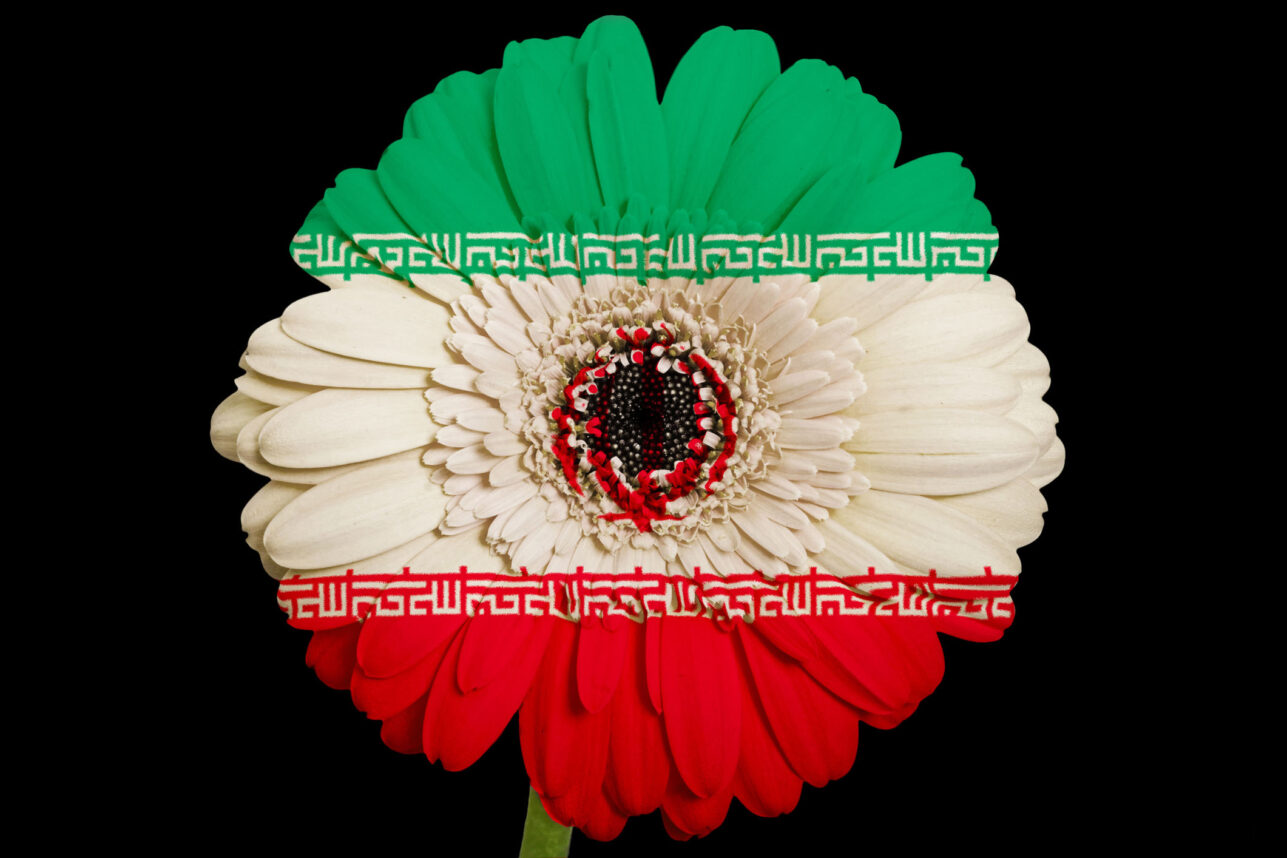 francescoch/Getty Images
francescoch/Getty Images Exile begins with envy. According to Rabbi Manoach Ben Yaakov, a 13th-century rabbi from Provence, the custom of eating celery at the Passover Seder comes as “a reminder of the multi-colored coat that Jacob made for Joseph, which (is what first) caused our forefathers to go to Egypt.” The grooved surface of the celery is similar to the striped coat that nearly destroyed Jacob’s family, and ultimately lead them into slavery.
Perhaps this may seem far-fetched; to get from Joseph’s coat to 400 years of exile requires an almost Chad Gadya-esque series of unfortunate events to follow. But this idea speaks a powerful truth: Envy is destructive. Once it enters our lives, what Shakespeare called “the green-eyed monster” wreaks havoc, both in ordinary homes and in the annals of history.
Condemning envy should be a simple task; it is a destructive force with no benefit to the envying or the envied. A straightforward sermon on the topic should suffice; envy is bad and destructive. End of story.
But any such sermon would fail because it is detached from reality. Envy is rooted in social comparison, a psychological instinct necessary for self-evaluation and the formation of identity. Envy is directly connected to competition, one of the engines of economic development. An envy-free world would be mediocre.
Rabbinic literature embraces reality instead. The Talmud (Baba Batra 21a) endorses envy as a way of improving Torah study, explaining that “the envy of scholars will increase wisdom.” The 15th-century Mussar anthology Orchot Tzadikim explains that “when one sees another studying, it should excite his envy and he should say ‘This man studies all day, I shall do the same!’… Everyone should envy his companion and try to emulate the good deeds of his companion.” Social comparison can be used to encourage goodness as well.
Another passage (Yalkut Shimoni Tehillim 37) emphasizes the pragmatic value of the role of competition. Envy spurs development. The Yalkut explains that “without envy, the world would not stand: no one would plant a vine, marry a woman, or build a house.” Ambition is envy’s firstborn, an instinctive response to the success of others. Keeping up with the Joneses keeps many other people fully employed.
But envy can turn malign very quickly. Aristotle points out that we are most jealous of those similar to us—people who are our peers, and those in the very same profession as us. (The Midrash offers a pithy phrase for this: “Every craftsman hates his fellow.”) The success of peers makes us feel inadequate. Aristotle explains that we “envy those whose possession of, or success in a thing, is a reproach to us: these are our neighbors and equals. For it is clear that it is our own fault we have missed the good thing in question; this annoys us and excites envy in us.” As the 15th-century Mussar work Orchot Tzadikim puts it: “envy often arises from a sense of inferiority.”
Remarkably, inferiority-inspired envy afflicts even the most successful people. Joseph Epstein, in his book “Envy,” recounts his experiences with academic colleagues. He explains that “rarely in my observation, do the top three or four people in any line of intellectual endeavor have kind words to say about the others … How little it takes to make one academic sick with envy over the pathetically small advantages won by the other: the better office, the slightly lighter teaching load, the fickle admiration of students.” Envy among the best and brightest is often the most bitter.
Envy is an ever-present force in our lives, and the cause of a great deal of disruption and dysfunction. Thoughts of envy arise effortlessly and incessantly; yet it is fascinating how infrequently this vice is discussed today. In the Torah, the narrative of Joseph and his brothers puts envy on full display, inspiring generations of readers to consider its impact.
Envy is an ever-present force in our lives, and the cause of a great deal of disruption and dysfunction.
Joseph irritates his brothers in many different ways. His father clearly favors him, and gives him a special multicolored robe. He tattles to his father about his brothers’ misdeeds. He has dreams that indicate that he wants to be the ruler of the family.
Rabbeinu Bachya explains that there were two layers to the brothers’ resentment. First, they were jealous of the fact that Joseph had stolen their father away from them; Jacob gives Joseph special treatment. The multi-colored coat is an ever-present reminder that Jacob “loved Joseph most of all his son.”
The second resentment is one of envy. After listening to his dreams, the brothers began to recognize Joseph’s potential, and worried that he might actually end up ruling over them.
The brothers’ attack on Joseph reflects this dual resentment. They tear off his coat, which is a symbol of their father’s special attention to Joseph. They make a point of bringing Joseph’s special coat back to their father, which indicates that their fury regarding the coat is more about Jacob than Joseph. But what they do afterward to Joseph betrays their envy. The brothers are intent on pushing Joseph down: They throw him down a pit, and sell him “down” to Egypt to descend into slavery. Joseph must be diminished and demeaned, as if to prove that he is their inferior.
Rabbinic commentaries emphasize that envy doesn’t emerge in a vacuum. Jacob stokes the brothers’ jealousy by favoring Joseph; reflecting on Jacob’s actions, the Talmud (Shabbat 10b) says that “one must never distinguish one child from the others.” Favoritism can destroy any family, and Jacob, in repeating the same mistakes that his own parents made, favors one child and enrages the others.
Joseph also plays a critical role in inciting the envy of his brothers; he continually flaunts his beauty and his status. Rashi explains that Joseph “dressed his hair and touched up his eyes so that he should appear good-looking.” Bechor Shor adds that in repeating his dreams to his brothers, Joseph acted very foolishly. How could he not know that these dreams would enrage his brothers?
This is the most important lesson of this section: it takes a village to control envy. It is not enough to work on our own character; we must be thoughtful about how we display our own success. The Orchot Tzadikim notes that at the end of the Amidah we pray “that no person be envious of me, and that I not be envious of others.” The envy of others is of serious concern as well; we must not parade around arrogantly like Joseph. Thoughtless bragging destroys friendships and undermines families.
We live in an era of envy. Social media is fueled by exhibitionism, of people sharing photos documenting every detail of their vacations, new clothes, nights out and what they cooked for dinner. Some of this social media posting is not a bad thing at all; very often, friends want to share in the experience. But all too often the sharing is an exercise in pure ego, an attempt to exhibit one’s status to others.
That certainly is not a good idea. As a society, we are driving ourselves (and each other) mad with envy; and while this is an age-old problem, it has been amplified by social media. Each beautiful vacation posted to Instagram requires a response; everyone else must make amends. So people go to great lengths to get the perfect selfie, sometimes endangering their lives to do so. And none of this is helpful to anyone; what is left after all of this breathless photo posting are feelings of inadequacy and resentment.
Each year, we take a small piece of celery to remind ourselves of the dangers of exhibitionism. This lesson could not be more important than today, when we can show our new coat of many colors to thousands of people with the click of a button.
Rabbi Chaim Steinmetz is the Senior Rabbi of Congregation Kehilath Jeshurun in New York.






















 More news and opinions than at a Shabbat dinner, right in your inbox.
More news and opinions than at a Shabbat dinner, right in your inbox.